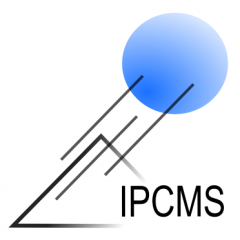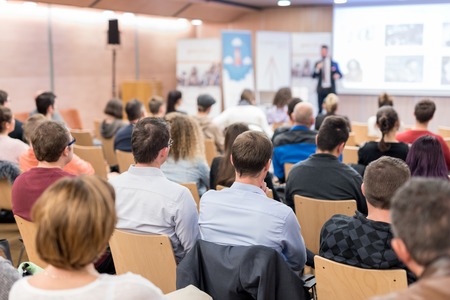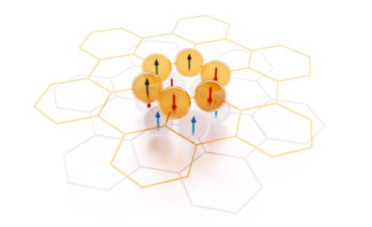Abhishake MONDAL (Solid State and Structural Chemistry Unit, Indian Institute of Science, Bangalore)
Abstract :
The pursuit of smart multifunctional materials with stimuli-responsive magnetic and optical response has drawn escalating interest in both fundamental science and potential applications to switches, sensors, and intelligent devices.1 One of the appealing feature of such materials is the tunability of their physical property via chemistry, where the linking structure and physical properties can be modulated in practically infinite ways, which gives them an edge over the solid-state magnetic materials (Figure 1, a).2 The field of molecular bistable systems is rapidly budding towards utilizing these molecule-based magnetic materials in physics-driven and nanotechnology-driven fields (Figure 1, b).

Figure 1: a) Stimuli-responsive molecular bistable systems and b) Application areas where these systems are actively studied for developing devices
Here, I will briefly cover the exciting field of Molecular Magnetism and will specifically focus on three most important aspects of Molecular Magnetism being pursued in my laboratory i) Spin Crossover (SCO) materials3 ii) Metal-to-Metal Electron Transfer Systems (MMET)4 and iii) Single Molecule Magnets (SMM).5 Lastly, I shall discuss the application of these bistable systems in developing ring-resonator devices for Photonics Application, molecular break junctions and microelectromechanical systems.
Acknowledgments: I thank the Indian Institute of Science (IISc), Bangalore, India, and the Ministry of Human Resource Development (MHRD), Ministry of Education (MoE), Government of India, IISc-Start-up Research Grant, the Department of Science and Technology, Mission on Nano Science and Technology (Nano Mission), Scheme for Transformational and Advanced Research in Sciences (STARS, MHRD), Council of Scientific and Industrial Research (CSIR) for the research fundings.
References:
1. Kamilya, S.; Dey, B.; Kaushik, K.; Shukla, S.; Mehta, S.; Mondal, A. Chem. Mater. 2024, 36, 4889, Kaushik, K.; Mehta, S.; Das, M.; Ghosh, S.; Kamilya, S.; Mondal, A., Chem. Commun., 2023, 59, 13107, Coronado, E., Nat. Rev. Mater. 2020, 5, 87. 2. Minguez Espallargas, G.; Coronado, E., Chem. Soc. Rev. 2018, 47, 533. 3. Ghosh, S.; Kamilya, S.; Pramanik, T.; Rouzieres, M.; Herchel, R.; Mehta, S.; Mondal, A., Inorg. Chem. 2020, 59, 13009, Ghosh, S.; Ghosh, S.; Kamilya, S.; Mandal, S.; Mehta, S.; Mondal, A., Inorg. Chem. 2022, 61, 17080, Bagchi, S.; Kamilya, S.; Mehta, S.; Mandal, S.; Bandyopadhyay, A.; Narayan, A.; Ghosh, S.; Mondal, A., Dalton Trans., 2023, 52, 11335, Ghosh, S.; Bagchi, S.; Kamilya, S.; Mehta, S.; Sarkar, D.; Herchel R.; Mondal, A., Dalton Trans., 2022, 51, 7681. 4. Kamilya, S.; Ghosh, S.; Li, Y.; Dechambenoit, P.; Rouzières, M.; Lescouëzec, R.; Mehta, S.; Mondal, A., Inorg. Chem., 2020, 59, 11879, Kamilya, S.; Ghosh, S.; Mehta, S.; Mondal, A., J. Phys. Chem. A 2021, 125, 4775. 5. Hossain, S. M.; Kamilya, S.; Ghosh, S.; Herchel, R.; Kiskin, M. A.; Mehta, S.; Mondal, A., Cryst. Growth Des. 2023, 23, 1656.


